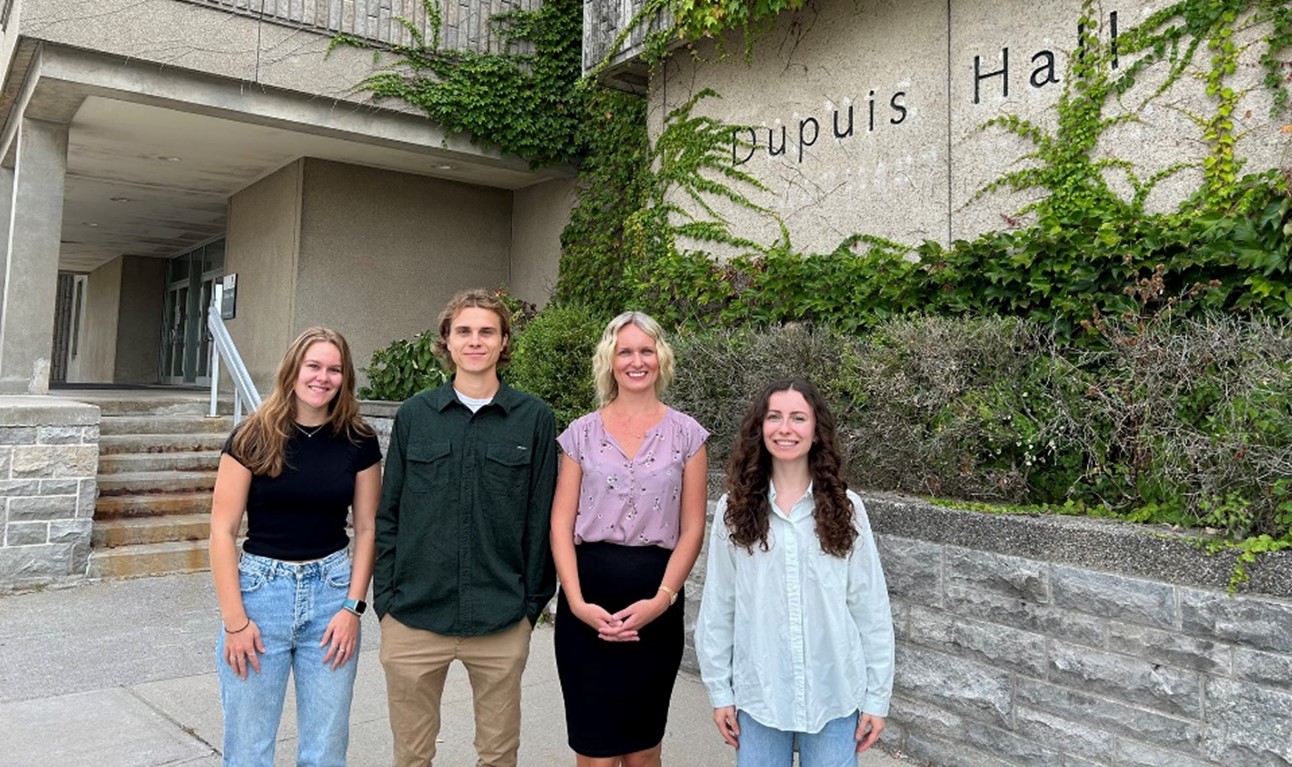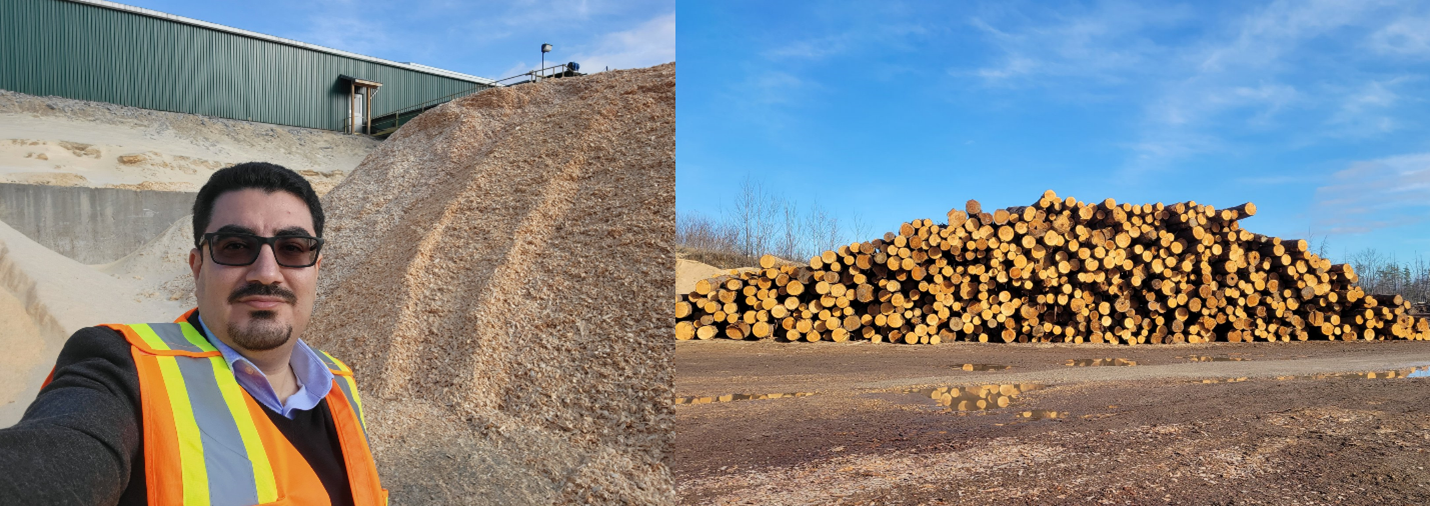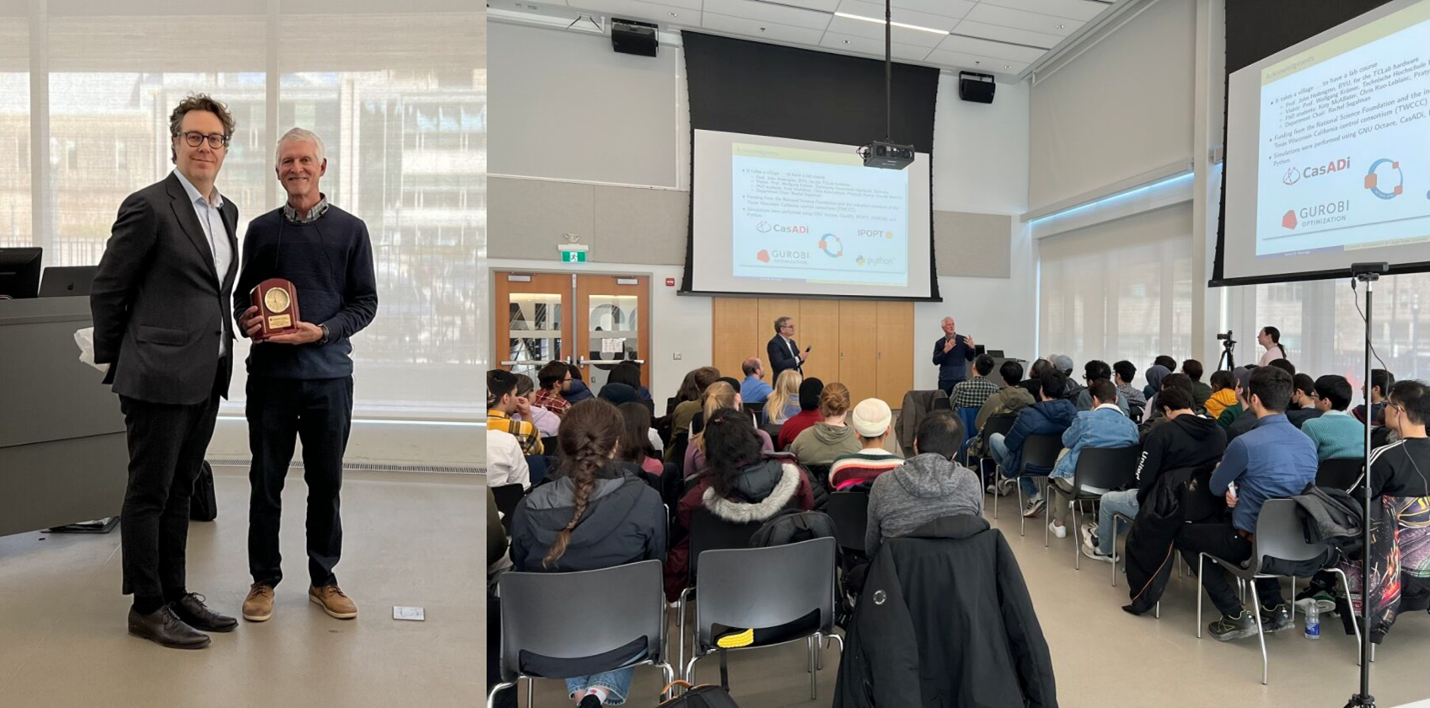As we start off 2024, let's look back at some of Chemical Engineering’s highlights over the last year.
This year, we saw new positions and welcomed new faces to the department. Former Head, Brian Amsden was appointed as Associate Vice-Principal Research, and will serve as Queen’s NSERC Leader. Robin Hutchinson will continue to serve as Head for the first half of 2024. Marianna Kontopoulou was appointed Associate Dean (Academic) for a second five-year term. Our Chemical Technologist Kelly Sedore went on leave and we welcomed back Danielle Sanderson and new Chemical Technologist, Srijit Nair. We also welcomed our newest Assistant Professor, Rachel Baker, who commended the inaugural Robins Family Professorship of Engineering Chemistry in July. The overall vision of Rachel’s research program is to decrease the reliance of the chemical industry on fossil fuels, through the development of paired electrolysis reactions. Finally, we said goodbye to Jeffrey Giacomin who retired in January and Xiang Li who joined Zhejiang University (China) in the summer.

Figure 1. New Faculty Rachel Baker and her first students. From left to right: Leah Chesney, Sam Fahrngruber, Rachel Baker, and Alexandra Romain.
Faculty, staff and students received multiple awards in recognition of research and academic excellence. Highlights include:

Figure 2. Cao Thang Dinh won the Falling Walls Science Breakthrough of the Year in the Engineering and Technology category for Breaking the wall of decarbonization.
2023 was also an excellent year for research with our faculty awarded over $3.8 million in research funding and published over 100 articles in peer-reviewed journals. This includes Ehssan Koupaie who is leading an over $1.4 million NSERC Alliance Missions Grant that will develop data-driven life-cycle greenhouse gas emissions decision tool for municipal organic waste management. Ehssan is also collaborating with Harvest Bioindustrial Group, and Lavern Heideman & Sons, receiving $120,000 from the Ontario Ministry of Forestry to explore the use of underutilized hardwood residues to produce biofuel and other value-added products. Kevin De France and Paul Hungler received their first NSERC Discoveries, and Aris Docoslis, Carlos Escobedo, Marianna Kontopoulou and Louise Meunier received an NSERC RTI to support a Raman spectroscopy system for (bio)chemical analyses and materials characterization. Aris and Carlos are also part of a team that received an NFRF Exploration that will develop a new diagnostic device to quickly diagnose antibiotic-resistance bacterial infections. Scott Parent received $223,000 from NSERC Alliance and Ingenia Polymers for a project that will investigate recyclable polyolefin thermosets. Many faculty are associated with emerging clusters in Engineering including Emerging Cluster for Biomaterials (led by Brian Amsden) and Emerging Cluster in Sex and Gender Considerations for Biomedical Devices (led by Laura Wells). Finally, several faculty and students were awarded Mitacs Accelerate and Elevate Grants to collaborate with industry including Michael Cunningham, Martin Guay, Lindsay Fitzpatrick and Laura Wells.

Figure 3. Ehssan Koupaie is collaborating with Harvest Bioindustrial Group, and Lavern Heideman & Sons to explore the use of underutilized hardwood residues to produce biofuel and other value-added products.
We are excited to have continued several in-person events, including some new additions to engage undergraduate and graduate students. The Departmental Seminar Series continued, including the David W. Bacon Distinguished seminar (coordinated by Nicolas Hudon), where we were joined by Dr. James B. Rawlings, the Mellichamp Process Control Chair from the University of California, Santa Barbara. James discussed "Economic optimization of large-scale systems with model predictive control". Many of our students participated in booths hosted by Laura Wells and Lindsay Fitzpatrick in Science Rendezvous Kingston. In addition to presenting at numerous national and international conferences, our students presented at our in-house poster day. Open Plastic (led by Laurence Yang and James McLellan) hosted its first symposium emphasizing enzyme discovery and optimization, process characterization and optimization. Our junior faculty, Rachel Baker, Kevin De France and Peter Gilbert hosted the first ever Chemical Connections Career Event, where 6 alumni from industry and government returned to Queen’s to talk and network with our undergraduate (including first-year students) and graduate students. Finally, this upcoming July, Kim McAuley will co-chair the 12th IFAC Symposium on Advanced Control of Chemical Processes (ADCHEM 2024) in Toronto.

Figure 4. Dr. James B. Rawlings presenting at this years David W. Bacon Distinguished Seminar.